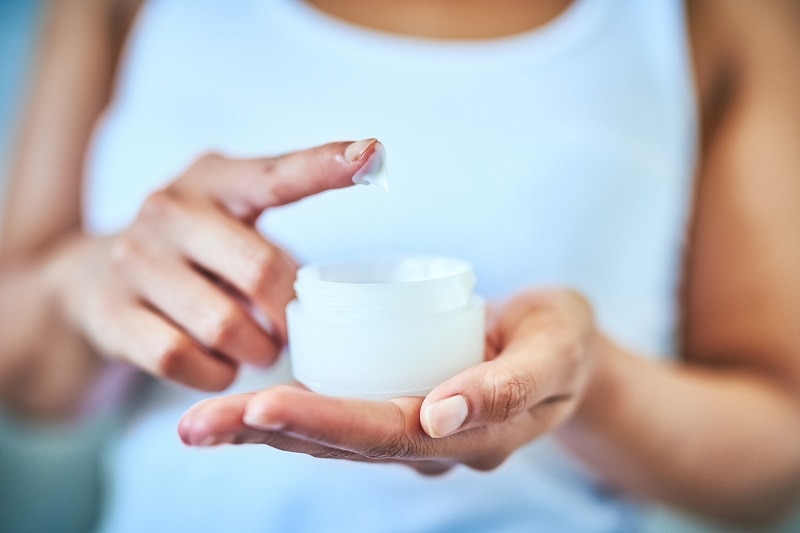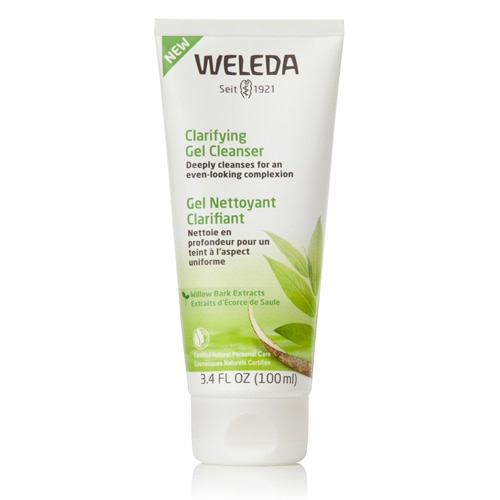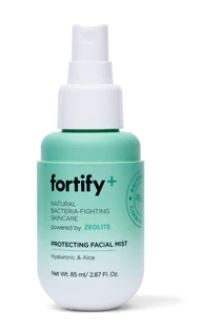 Dr. Erum Ilyas is a dermatologist and founder of AmberNoon, which offers sun-protective clothing and accessories. She explained that each season adds its own slew of skin challenges.
“Summer adds humidity, increased UV exposure and heat, and spring and fall can add allergens, which irritate the skin just as much as it does for the airways,” Ilyas said. “With the excess cold and dry air in winter, skin needs added moisture since it’s simply not getting it from the environment.”
Dr. Erum Ilyas is a dermatologist and founder of AmberNoon, which offers sun-protective clothing and accessories. She explained that each season adds its own slew of skin challenges.
“Summer adds humidity, increased UV exposure and heat, and spring and fall can add allergens, which irritate the skin just as much as it does for the airways,” Ilyas said. “With the excess cold and dry air in winter, skin needs added moisture since it’s simply not getting it from the environment.”
Connect to Nature with Weleda | Vitacost.com
Weleda Skin Clarifying Gel Cleanser Description
-
Deeply Cleanses for an Even-Looking Complexion
-
Will Bark Extracts
-
Certified Natural Personal Care
-
For Oily or Combination Skin
Gently removes dirt, oil and makeup without drying, for an even-looking complexion. Dermtologically tested for skin safety. No animal testing. Free from parabens and phthalates.
Invigorating, deep cleansing for a clearer, healthier and even-looking complexion
A refreshing gel cleanser, for oily and combination skin types, that deeply purifies pores to clear away oil and impurities while leaving skin soft and healthy-looking.
• Clarifies impurities without disturbing your skin’s innate protective barrier
• Leaves skin feeling refreshed and soothed with clearer pores
• Rebalances moisture with replenishing ingredients like jojoba and babassu oils
This skin-balancing solution is formulated with botanical ingredients for oily and combination complexions for clearer more even-looking skin. Willow bark extract balances, and purifies pores to gently, but deeply cleanse and clear away oil, makeup, dirt and other impurities. Your skin will feel cleaner and calmer with a blend of nurturing antioxidants and nourishing oils. Part of an effective yet gentle routine that clarifies and calms to help unclog and purify your pores and balance your skin’s moisture.
Benefits
Specifically developed for oily and combination skin types, this cleanser dissolves impurities that can cause skin flare-ups, for clearer, more even and healthier-looking skin.
Key Ingredients
Witch Hazel Distillate
The distillate of the Witch Hazel plant has a refreshing skin effect. Therefore, Witch Hazel is a suitable ingredient used for face cleaning products to refine the skin and maintain moisture.
Willow Bark
This antioxidant has balancing, toning properties to improve the appearance of uneven complexions and defend the skin’s barrier from environmental pollution.
Licorice Root Extract
This multi-tasking powerhouse is a potent antioxidant and a skin-soothing agent skin-soothing agent that supports your skin and promotes more even-looking skin.
*These statements have not been evaluated by the Food and Drug Administration. This product is not intended to diagnose, treat, cure, or prevent any disease.
*From natrual essential oils




